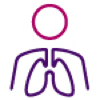Know the Facts
Heart failure — sometimes described as a weak heart — is a common, long-term condition. 6.2 million people in the U.S. live with heart failure.1
With heart failure, your heart isn’t pumping as well as it should be. This means that your body is not getting the oxygen it needs. Heart failure can impact your quality of life. With heart failure, you may experience symptoms that range from moderate to severe.2,3








Heart failure can worsen over time.
If left untreated, symptoms will become more serious and limit your ability to perform daily activities.
When heart failure progresses, hospital admissions become more common. Each hospital admission can cause more damage to the heart, and increase risk of death.4
Learn more about heart failure, its symptoms and treatment options.
If you are experiencing any of these symptoms, talk with your doctor, and be sure to bring this list of questions to any conversations.
If left untreated, patients who are hospitalized for heart failure die WITHIN 2.5 YEARS4

Take Control of your Heart Failure Journey
You can make a difference in your heart health. Taking an active part in your heart failure journey can help you slow disease progression and support a better quality of life.5
Hear Zuleyma's story.
“I have a heart pump that is helping me live my best life.”
Zuleyma – diagnosed with heart failure and taking steps toward improving her quality of life.*
Know Where You are Right Now.
Understanding your symptoms and limitations can help guide future care. Ignoring your symptoms can cause future damage to your heart.
If you are changing your lifestyle and limiting activities because you feel tired, your heart failure may be getting worse. A heart failure specialist can help you understand your options and create a treatment plan that is right for you.
Active engagement in your health often means finding the right doctor. Get connected to a heart failure specialist near you.
Know Your Options.
In its early stages, heart failure can often be managed with medicines2 and a healthy way of life.
As heart failure gets worse and the heart becomes weaker, medicine becomes less effective. Other therapies may then be needed.6
Together, you and your heart failure specialist can discuss options for helping you manage your heart failure.
Do you want a to better understand the impact of heart failure on your health?
Take this Heart Failure Quiz for greater insights into your symptoms.

Learn from others who have taken control of their failure.
Ed's story.
"I literally was turning into a couch potato. I couldn’t go from my couch to the bathroom without taking two or three stops for resting with a cane. Now I go outside, I walk around, I spend time with my animals. I spend time with the wife.”
Ed – living with heart failure and a PA pressure monitor system called CardioMEMS™ HF System.*
Iris' story.
"I've opted to try and manage things through managing the amount of fluid and pressure that I’m putting on my heart, and so being able to know that someone is watching and helping me to maintain those levels to keep the pressure off of my heart – that’s what makes the biggest difference.”
Iris – who is back to playing with her grandchildren and cheering for her favorite football team now that she has her CardioMEMS™ HF System.*
These materials are not intended to replace your doctor’s advice or information. For any questions or concerns you may have regarding the medical procedures, devices and/or your personal health, please discuss these with your physician.
*This testimonial relates an account of an individual’s response to the treatment. This patient’s account is genuine, typical and documented. However, it does not provide any indication, guide, warranty or guarantee as to the response other persons may have to the treatment. Responses to the treatment discussed can and do vary and are specific to the individual patient.
References
- Virani SS, Alonso A, Benjamin EJ et al. Heart disease and stroke statistics—2020 update: a report from the American Heart Association. Circulation. 2020;141:e139–e596.
- Mayo Clinic. 2025. Accessed on June 13, 2025. https://mayoclinic.org/diseases-conditions/heart-failure/symptoms-causes/syc-20373142
- American Heart Association. 2025. Accessed on June 13, 2025. https://www.heart.org/en/health-topics/heart-failure/warning-signs-of-heart-failure
- Setoguchi S, et al. Repeated hospitalizations predict mortality in the community population with heart failure. Am Heart J. 2007;154(2):260-266.
- Greene J, Hibbard JH. Why does patient activation matter? An examination of the relationships between patient activation and health-related outcomes, J Gen Intern Med. May 2012.
- AbouEzzeddine OF, Redfield MM. Who has advanced heart failure? Definition and epidemiology. Congest Heart Fail. 2011;17:1-18.
MAT-2210620 v4.0
